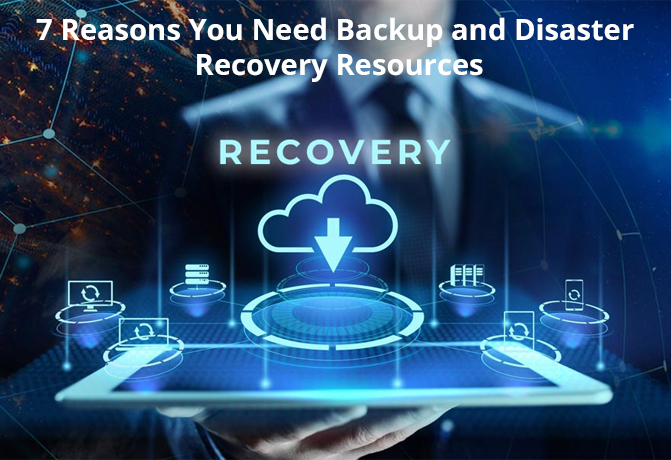Why Do You Need Backup and Disaster Recovery Resources?
A disaster recovery plan should describe precisely how you intend to protect your company in the event of a sudden incident. It should include strategies for quickly recovering from any type of disruption. A written document should outline the strategic steps you will take and the resources you will need to implement them.
What are Backup and Disaster Recovery and Planning?
Disaster recovery is a plan created by your IT department or an outsourced IT consulting firm. It allows a company to access its data in the event of a disaster that could potentially destroy some or all company resources. A cloud-based disaster recovery strategy can be something to fall back on that you rarely use but absolutely require. A disaster recovery plan’s primary function is to quickly restore your systems, mitigate risk, minimise downtime, accelerate recovery, and protect sensitive data. As downtime and disruptions are costly, organisations cannot afford to ignore backup and disaster recovery. Aside from the cost, there are numerous reasons why you require both.
Here are a few examples:

- Various Kinds of Threats : Data is essential to any business. It’s constantly under attack from a variety of threats that can result in data leaks or loss. It’s best to exercise caution to protect company data against all these threats. However, it never hurts to have a backup plan in case of any unexpected outages or data losses.
- Security Breach : Regardless of how strong security measures are, there is a possibility of a breach occurring. However, you can take steps to protect it by having a backup plan in place. This way, you can easily restore any lost data if you have a proper plan in place to tackle such scenarios.
- Loss of Productivity : Every minute your system is down, or your data is not restored, your team’s productivity suffers. A good plan for minimising disruptions can help you protect your profits and increase productivity.
- Data Loss : A data backup and disaster recovery plan will protect you from permanent data loss. The ease with which you can recover lost data is largely determined by how well you’ve fortified this data.
- Customer Retention : Though customer retention is costly, re-acquisition is far more expensive. It is difficult to gain a customer’s trust and loyalty, which is why taking preventative measures. Protecting their information and files is critical to standard operating procedures.
- Maintaining a Standard : By having a disaster recovery, businesses can safeguard their reputation and prevent negative brand exposure. Negative experiences can spread like wildfire, making it more important than ever to have a solid plan in place. By demonstrating a commitment to preparedness, businesses can not only prevent downtime but also build greater trust and confidence among their customers.
- Costs : Unplanned attempts to recover lost data can be extremely costly. It is even more expensive to demand a quick recovery. A business owner can avoid this by planning ahead of time. Having a plan will prepare the company in the event of a data loss.
Secure Your Business with MSP Corporation’s Disaster Recovery Planning Services
There are many factors to consider when developing an effective recovery plan. That’s why it’s always recommended to consult with an expert. As a reputed IT service provider, MSP Corporation uses best practice solutions to keep Customers business data secure, regardless of any disruptive event. Creating, implementing, and maintaining a disaster recovery plan is a critical but time-consuming process. That’s why it is necessary to ensure that your business is secure and prepared for any unforeseen event. For more details, reach out to MSP Corporation on 1300-554-404 or email sales@mspcorp.com.au.


 Australia's No.1 Managed Service Provider for Quality, Value and Service
Australia's No.1 Managed Service Provider for Quality, Value and Service
